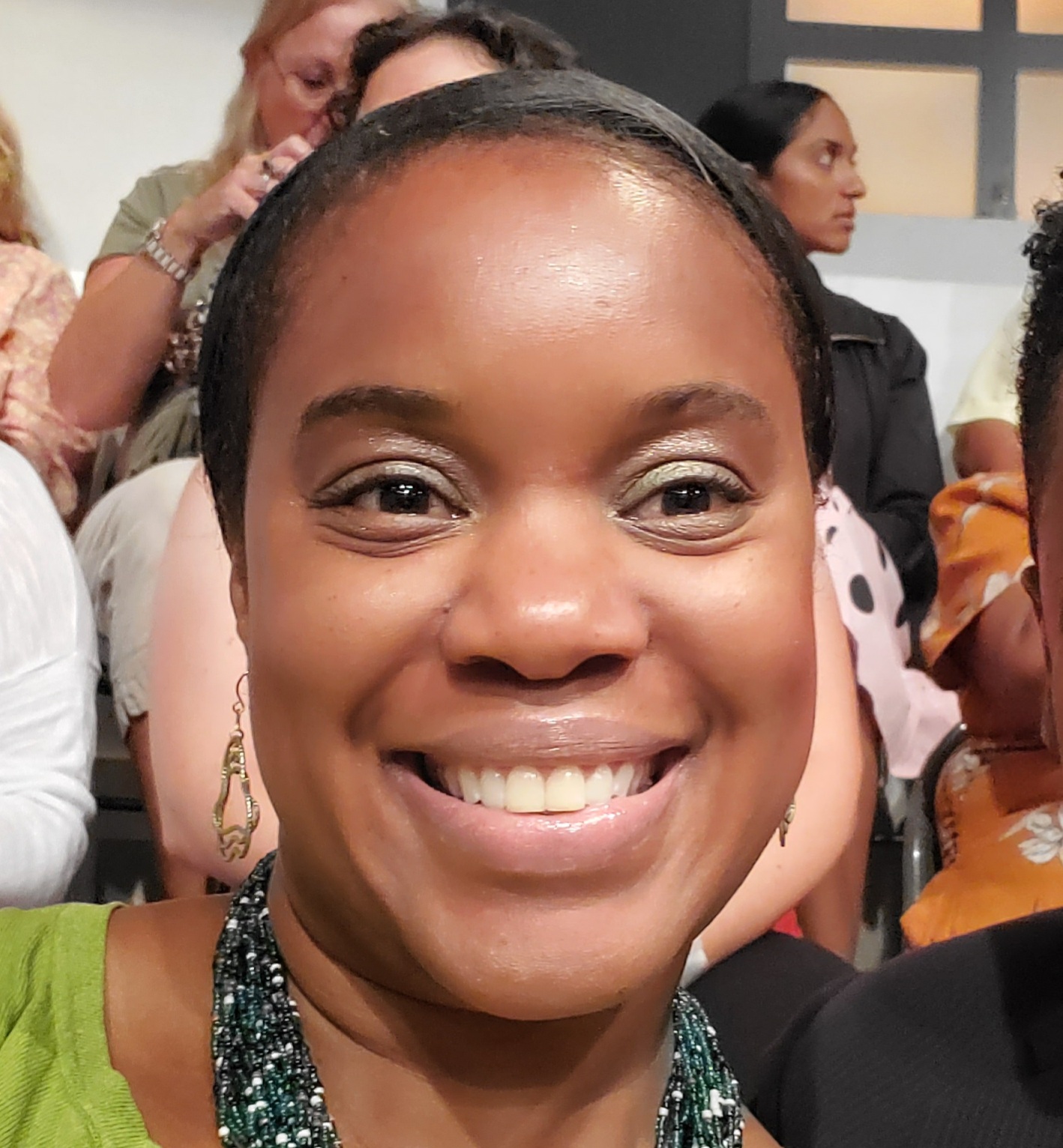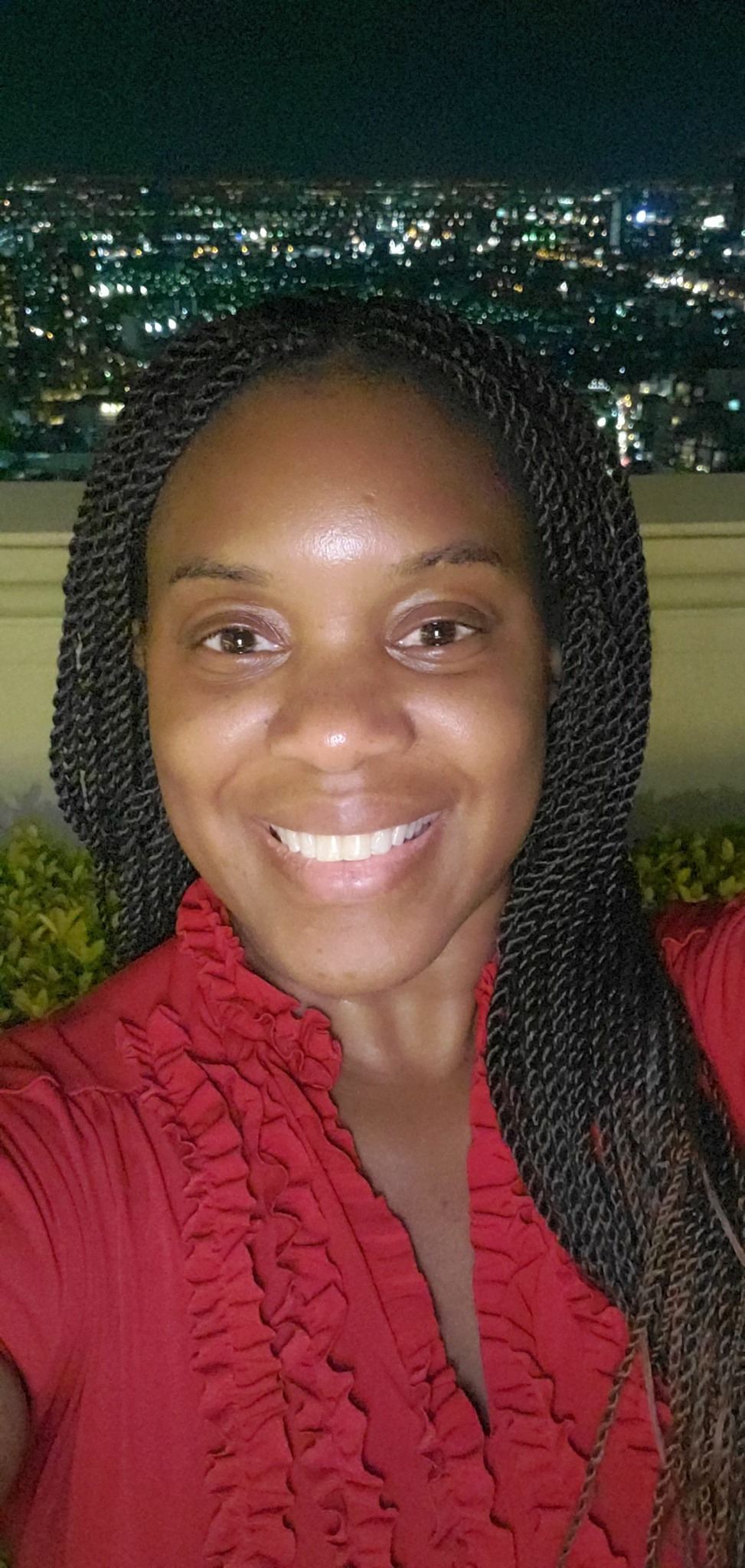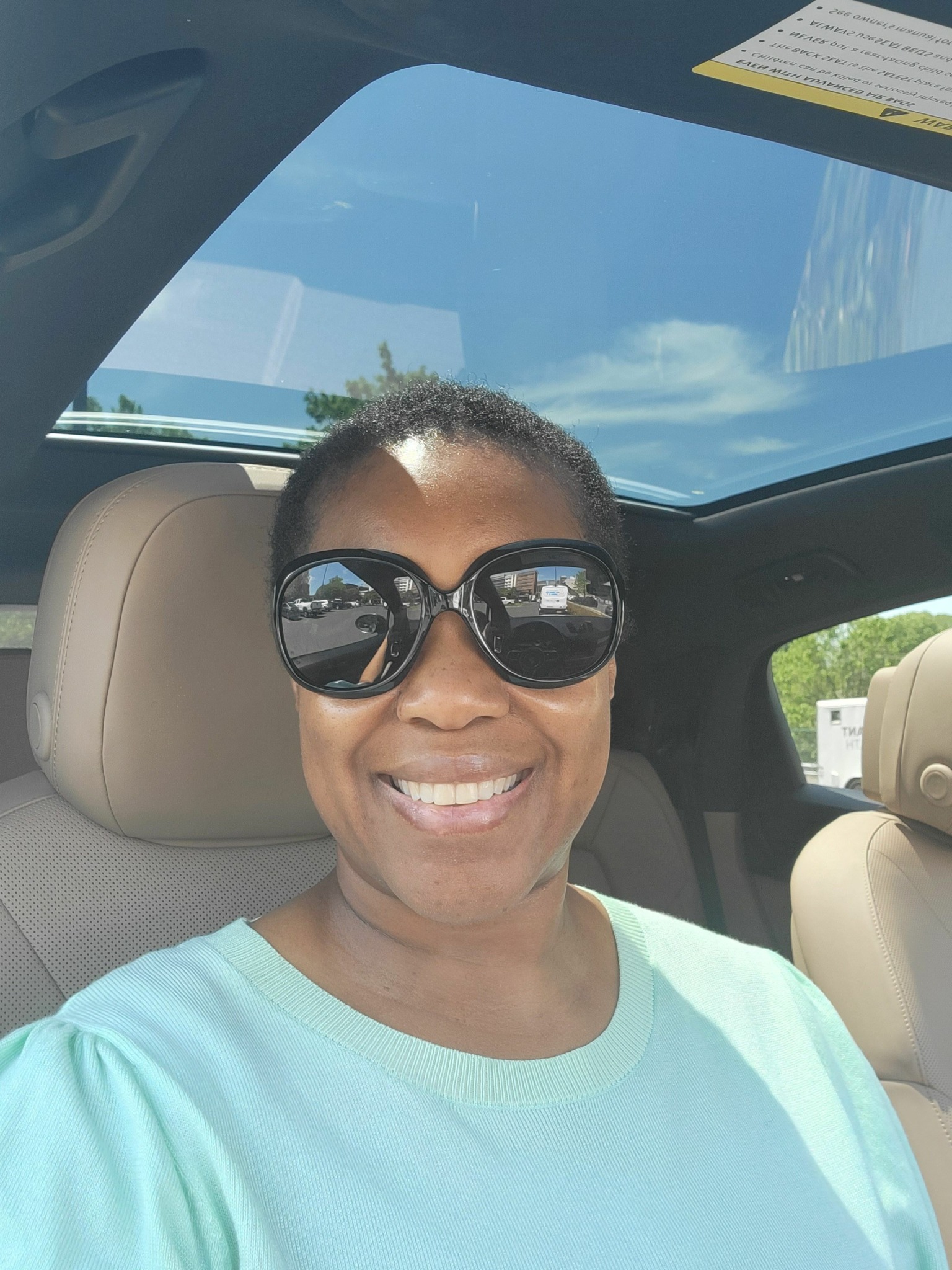We recently connected with Tori Scarborough and have shared our conversation below.
Tori, looking forward to hearing all of your stories today. Innovation comes in all shapes, sizes and across all industries, so we’d love to hear about something you’ve done that you feel was particularly innovative.
I had the pleasure of serving at the request of the 44th President of the United States, Barack Obama. I worked for him in various capacities over seven years. Immediately following the historic passage of the Affordable Care Act or Obamacare in March of 2010, I was hired to work at the U.S. Department of Health and Human Services (HHS) in the capacity of an external affairs specialist. We were working on getting the effective message out to the public about the work of the Affordable Care Act and how that would impact all communities. The initial message wasn’t landing well as there were so many dis-information campaigns happening simultaneously throughout the country in townhalls and community forums. Politicians, community leaders and members of the Obama administration were getting booed and jeers as they went out to speak about the new law.
As social media was evolving and was a creative way to interact and reach broader and younger audiences, I pitched an idea to the team at HHS that we host the first-ever White House Twitter Town Hall on Public Health. Included in this townhall were experts in health policy. Our audience members were very diverse and incredibly interested in what the bill included and how it would impact their key constituency members. It allowed the administration to hear from our stakeholders and constituents about their needs and any improvement areas we needed to consider as we continued to implement, inform, and empower the country with this legislation.

As always, we appreciate you sharing your insights and we’ve got a few more questions for you, but before we get to all of that can you take a minute to introduce yourself and give our readers some of your back background and context?
My most recent job was in human resources where I held roles in leadership development and diversity recruitment for college students. I held these roles within corporate finance and engineering companies over the past 7 years. The goal was to ensure we were hiring top-tier diverse talent to enter into the company to learn the various roles and eventually, through retention and promotion, ascend to higher level positions in the company. It was, in theory, a great way to plan for succession. Often times, recruiting was on autopilot as it is something that’s done at most fortune 500 companies to stay competitive and relevant amongst peers. Recruitment efforts that I was involved with included on-campus recruiting, company sponsored recruiting events, coffee chats, and other high touch introductory meetings so students can learn and ask questions to prepare for applications and interviews. These activities to recruit top level students was cyclical, so it allowed us to see trends that were occurring in real time so we could adjust where needed. This also provided me the opportunity to review important data with newly employed individuals where we could develop program to support their development throughout their programs and tenure at the company. At one of the companies where I worked, the executives were very averse to recruitment efforts at non-ivy league campuses and created barriers when hiring diverse candidates. This changed dramatically on the heels of the George Floyd murder and COVID-19. With compassion, backed with data, I was able to effectively persuade the executives to host the first ever HBCU webinar at this institution which was not used to having these types of events. To me, it just made sense, and other companies were doing these kinds of innovative recruiting techniques to bring high performing candidates through the door. As a result of this webinar, we increased diversity recruitment measurably that year. Unfortunately, the culture had not changed within certain departments that hosted interns. My team and I began to work on developing sensitivity training and implementing tools at this organization to ensure interns and other newly hired diverse staff were able to succeed. This is the kind of work that I enjoyed doing. It was really coming in and making these changes to fully impact work we were doing that affected the country. I was very proud of the programs that I implemented on diversity recruitment over these last several years.
Prior to working in human resources in the corporate world, I worked for over 7 years for President Obama. My work with President Obama started July 27th, 2005, as an intern in his Hopefund PAC in Washington, DC. He had recently been sworn-in as U.S. Senator from IL and his staff at his PAC office wanted to make good on one of his campaign promises. That was to create a diverse pipeline of campaign staff in other areas of political campaigns. As a result, they were looking to develop a campaign training program that would do just that. I had recently graduated from Howard University with a graduate degree in religious studies with an emphasis in ethics. I went to Los Angeles briefly and worked on a local mayoral race. After the candidate was unsuccessful with the bid for mayor, I decided to move back to DC to potentially go back and obtain a law degree or doctorate degree in African American history. While deciding on which path to take, I thought that it would be great to get an internship on Capitol Hill and begin to network and learn more about the process of Congress. I fully expected the internship to last no more than 3-6 months and then go back to school. When I was informed about this opportunity in Sen. Obama’s office, I was surprised because I thought that by July, he would have been fully staffed up especially after his amazing speech the year prior at the Democratic National Convention. Certainly, I thought, it would be a very competitive process to obtain what I thought to be a highly sought after internship. That was far from the truth. Shortly after I submitted my resume, a few days later, I received a call stating that I was the candidate they wanted to hire and for me to come in and meet the political director to talk about the internship. It was during this informal meeting at a bagel shop off of Massachusetts Ave a few blocks away from Union Station and directly across the street from the office, where the idea of this training program concept was pitched to me. I was asked if I would be interested in running it or maybe attending it when I started. I told him it was very fascinating, and I would love to be a part. We agreed on the days that I would do my internship for the remainder of the summer, and that was my unofficial interview.
The next week, I came in for my first day on the job, it was Wednesday, July 27th, 2005. The office manager told me that it was a great day to start because Sen. Obama was meeting with the summer interns over lunch and that I would be able to meet him. I got so excited because I was going to meet him on my first day at work. The political director came by and told me that I was not going to that event. He didn’t want me to meet Sen. Obama in that capacity. I was confused and my heart sank. The day went by and I was assigned light activity to research organizations that did the work we were looking to create. At 3:45 pm, the political director came to me and said, let’s take a walk. He and I walked to the Senate Office. There, I met the chief of staff, the communications director, the legislative affairs director, and Senator Obama. I was asked to sit in the communications director’s office while they had their meeting with Senator Obama. They met for about 45 minutes, and then the political director came out and said, “let’s go”. Once we got outside of the office, he turned to me and said, “Congratulations. You are now the new deputy political director of the Hopefund PAC. You will be compensated retroactively for today and will be paid x amount. Your title is just that, a title, but you will help run the new training program”, (which was later named Yes We Can). He then said to me, “You may go home and tell your family that you are now employed with Senator Obama.” In a matter of minutes, my life changed. I went from being an intern at the beginning of the day to being hired as the deputy political director of a US Senator’s PAC office. Once hired, we started work on the training program. It was built from scratch with the help of EMILY’s List. We worked closely with EMILY’s List who had a successful campaign training program. We leveraged the material and format that they had to launch our program. The inaugural training class was a one-week intensive with 10 program participants. It took place January 2006 in Washington, DC. We brought in some of the top strategists to train the program participants. At the conclusion of the program, we held a mini-job fair to hire the program participants into political campaign jobs across the country. Our second, and last class, was held the summer of 2006 and it had 20 participants. The vision of Yes We Can was to train African American and Latino political minded individuals in various roles on political campaigns (e.g. fundraising, communications, field, political outreach, poling, etc…) and then get them hired on democratic campaigns across the country. In this role, I successfully trained, along with our counterparts at EMILY’s List, 30 program participants and placed them on campaign jobs. While working at the Hopefund PAC, Senator Obama made the decision to run for president and launched his exploratory committee from the Hopefund Office. I was tasked to be his national volunteer coordinator. During this time, there was an organic groundswell of students who were supporting his efforts to run. The team asked me to work with the students who were leading the effort of 1 million students for Barack Obama because of my work with Yes We Can. Once he launched his campaign, Hopefund PAC was absorbed in the campaign, and I relocated to Chicago to serve as the campaign’s initial national volunteer coordinator. I identified volunteers for his very early events to help me work sign-up tables at the DNC Winter Meeting in DC, the Jefferson Davis Dinner in Richmond, and when he officially launched his campaign in Springfield, IL, in 2007, I was in the national campaign office fielding calls from people excited to help out on his campaign. About seven months into the campaign, I was tapped to co-lead the national youth vote program and traveled around the country getting young democrats involved in the campaign through support, donations and volunteerism.
As we inched closer to the first caucus in Iowa and the primaries in the other early states, the campaign leadership began asking the team to go out to the states and help out in the field. I went to South Carolina because of my familial ties to the state. South Carolina was the first of six states I traveled to and worked in to help elect President Obama. The work I did varied from state to state. I handled constituency outreach, e.g. Women for Obama, clergy outreach, African Americans for Obama, Youth Outreach, etc. The last state I worked in, Virginia, I ran the surrogate scheduling program where I planned and organized strategic events for national and local surrogates to campaign on behalf of candidate Obama. Surrogates included Caroline Kennedy, Madeline Albright, Eric Holder, Blair Underwood, Jaime Foxx, Marlon Wayans, Sheryl Crow, and many more who were excited to work to get Senator Obama elected. After the campaign ended, I was hired on the Presidential Inaugural Committee as the deputy director for entertainment. Our role in this department was to review and hire all of the performers for the Inauguration. This included the parade, the inaugural balls and performers for the Inauguration. I was in charge of two balls, the first ever Kids Inaugural Ball for Sasha and Malia Obama, and the Youth Ball. Once we inaugurated President Obama, I went to work for the Department of Homeland Security where I was on the advance team for the Secretary of Homeland Security. I traveled ahead of her and made sure her schedule was executed perfectly. Oftentimes I had to coordinate with local, national and international law enforcement to control her movements in various locations around the country and the world. Immediately following working at the U.S. Department of Homeland Security, the Affordable Care Act (Obamacare) was passed into law, I was hired to work with the top officials to manage the messaging events across the country about the affordable care act.
Two events that I was most proud of in this role was after the devastating oil spill in the Gulf Coast region, I worked with the US Surgeon General to put together three events in three states to look at the devastation in the region and offer federal response to the community. We were able to generate positive press and offer hope to an area where jobs and lives were loss as a result of this calamity. The second event was the first ever White House Twitter Town Hall of Healthcare. I developed the idea to broaden the message about the positive impacts the healthcare law would have in various communities. We had various stakeholders who attended, and it went over well. The format I created was used throughout the remaining years of the Obama Administration in the White House to help amplify messaging to constituents throughout the country.
When I left the Obama Administration at the end of September in 2012, I went back to graduate school to study the impact of effective leadership in corporate management. I obtained my master of science in organization development and was hired to work as a human resources professional in the finance industry. I left the corporate world in May of 2024 to redirect and take time to fulfil my other passions and unique gifts. I am currently in the process of transitioning into a career in creative writing.
What do you find most rewarding about being a creative?
Oh, I love the ability of being autonomous in my creative process. You know, when ideation intersects with design and execution, there is an evolution of ideas and challenges that often leads to serendipitous outcomes. The reward comes when I am able to follow my passion and life’s calling to write about my experiences through funny and entertaining projects. My hope is that while it is entertaining that people walk away from my creation with a greater sense of self to find their own meaning in their journey. That to me is rewarding and it brings accomplishment to see my vision come to form through inspiration.
What’s a lesson you had to unlearn and what’s the backstory?
Early in my career when I began working with Senator Obama, I had taken on work that was somewhat familiar to me, but I had no real grasp on how to do the work. I was offered an internship and then hired the same day to co-lead a program with little experience. There was this expectation that I had these many years of experience to bring to the program to share and train these program participants. I was scared and in over my head. I needed a mentor someone to provide guidance as I was navigating the process. So, the old adage of “fake it until you make it” applied. Unfortunately, that manifested as arrogance and severe insecurity. I knew that if I made a wrong turn or said the wrong thing that it could have devastating impacts for the organization and for Senator Obama. For years, I was placed in roles that I was not trained for but had to figure out along the way with little to no coaching, guidance or mentorship. When I left the Obama Administration and went back to graduate school, I felt that I was finally in a place where I could raise my hand and ask for help. It was a safe place to learn, grow, and make mistakes. I had to unlearn the feeling of having to know everything and that it was ok to make errors because that’s how you grow. While I am incredibly grateful for the opportunities I had during those years of working for Obama, I had a lot of hard lessons that made my experiences richer. I can now say when I don’t know something I can ask and be curious. I love the phase of life I am in now, because the actions that I take, I am accountable for the outcomes and I am much stronger because of it.

Image Credits
Professional Headshot Photo by Michael Maxwell


